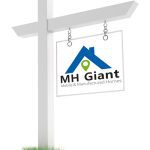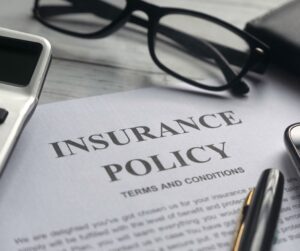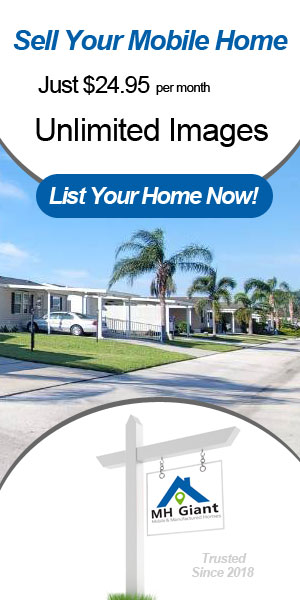How to Properly Insure Your Manufactured Home
Owning a manufactured home comes with a variety of benefits, such as affordability, mobility, and customization options. However, like any other home, it also requires protection through insurance. Whether you’re a new homeowner or simply looking to better understand your coverage options, this guide will walk you through everything you need to know about insuring your manufactured home.
Manufactured homes differ from traditional homes in several ways, from construction to placement, and these distinctions are reflected in the insurance policies designed to protect them. Properly insuring your manufactured home involves understanding the different types of coverage available and tailoring a policy that best meets your needs.
In this comprehensive guide, we’ll cover the following topics:
- Understanding the Basics of Manufactured Home Insurance
- The Key Differences Between Manufactured and Modular Homes (and Their Insurance Needs)
- Types of Insurance Coverage for Manufactured Homes
- Standard Homeowners Insurance
- Property Damage Coverage
- Personal Property Coverage
- Liability Insurance
- Additional Living Expenses Coverage
- Flood Insurance
- Wind and Hurricane Insurance
- Earthquake Insurance
- Factors That Affect the Cost of Manufactured Home Insurance
- Choosing the Right Insurance Provider
- How to Lower Your Manufactured Home Insurance Premiums
- What to Do If You Experience a Loss
- Common Myths About Manufactured Home Insurance
- The Importance of Regularly Reviewing Your Policy
- Conclusion: Finding Peace of Mind with the Right Insurance
Table of Contents
1. Understanding the Basics of Manufactured Home Insurance
Before diving into the specific types of coverage available, it’s important to understand what manufactured home insurance is and how it works.
Manufactured home insurance is similar to standard homeowners insurance but with key differences that address the unique risks associated with manufactured homes. The goal of this insurance is to protect your investment from unforeseen events, such as fire, theft, vandalism, or natural disasters. A typical policy will also cover your personal belongings and provide liability protection in case someone is injured on your property.
While many mortgage lenders require manufactured home insurance as a condition for financing, even if you own your home outright, maintaining adequate coverage is essential for protecting your assets and ensuring your financial security.
2. The Key Differences Between Manufactured and Modular Homes (and Their Insurance Needs)
When it comes to how to properly insure your manufactured home, it’s essential to understand the differences between manufactured homes and modular homes. Though both are factory-built housing types, they have different construction processes, building regulations, and insurance needs. Let’s explore the characteristics of each type and how these differences affect the type of insurance coverage you need.
Manufactured Homes: Construction and Classification
A manufactured home is built in a factory, transported to the site, and then installed either temporarily or permanently. These homes are often placed on rented land (like in a mobile home park) or private land where the homeowner may or may not own the land itself.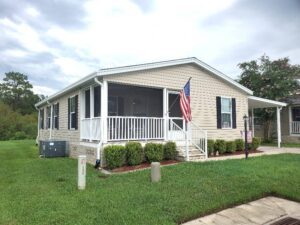
- Construction Standards: Manufactured homes are regulated by the U.S. Department of Housing and Urban Development (HUD) under the National Manufactured Housing Construction and Safety Standards Act of 1974. This law sets strict federal standards for manufactured homes in terms of design, durability, strength, fire resistance, and energy efficiency. These homes are built on a permanent chassis with a steel frame, making them movable if necessary.
- Appearance and Structure: While modern manufactured homes can closely resemble site-built homes in terms of design and aesthetic appeal, they differ because they are typically assembled in a single piece or in multiple sections (single-wide, double-wide, or triple-wide) and transported to the site.
- Foundation: Some manufactured homes are placed on temporary foundations like blocks or piers, while others may be installed on a permanent foundation, but the home’s HUD tag and permanent chassis classify it as a manufactured home regardless of the foundation.
- Common Locations: Manufactured homes are often found in parks or communities specifically designed for them, though they can also be placed on private property. The placement affects insurance because living in a community might expose the home to different risks (e.g., liability due to shared spaces) than a private lot.
Modular Homes: Construction and Classification
Modular homes, on the other hand, are also built in a factory setting but follow local and state building codes, much like traditional homes. These homes are constructed in sections, transported to the site, and assembled on a permanent foundation.
- Construction Standards: Unlike manufactured homes, modular homes must adhere to the local building codes of the state and municipality where they are installed. These homes are often considered equivalent to traditional site-built homes in terms of building quality and safety standards. They must meet the same zoning laws and construction regulations as any other home built on-site.
- Appearance and Structure: Modular homes are typically assembled in multiple sections, which are then transported to the site and placed on a permanent foundation. Once installed, they often resemble traditional site-built homes and may even have multiple stories.
- Foundation: Modular homes are always installed on a permanent foundation, which solidifies their classification as real property, similar to site-built homes.
Insurance Needs: Manufactured Homes vs. Modular Homes
Because of these key differences in construction, mobility, and regulation, the insurance needs for manufactured and modular homes also differ significantly.
- Manufactured Home Insurance:
- Tailored Coverage: Manufactured homes require specific insurance policies that take into account their unique characteristics, such as being built on a permanent chassis, having the potential for relocation, and being subject to different risks (like wind and storm damage due to lighter construction).
- Risks to Consider: Manufactured homes, especially older models, may be more vulnerable to certain perils, such as wind damage, fire, and vandalism. Additionally, manufactured homes are often located in parks, which means they might have shared amenities and additional liabilities.
- Special Coverages: In many cases, manufactured home insurance policies are more similar to mobile home insurance, with additional riders or endorsements needed to cover specific risks like floods or hurricanes. Furthermore, certain insurance companies may offer “stated value” policies, which pay out an agreed-upon amount in the event of a total loss, rather than actual cash value or replacement cost policies, which can be more common with traditional homes.
- Modular Home Insurance:
- Treated Like Site-Built Homes: Because modular homes are built to local and state codes and are placed on permanent foundations, they are typically insured the same way as traditional site-built homes. This means that you can expect to purchase standard homeowners insurance for modular homes, covering risks like fire, theft, and natural disasters.
- Coverage Similarities: Since modular homes are indistinguishable from site-built homes once completed, their insurance policies are generally more straightforward, including standard dwelling coverage, personal property protection, and liability coverage.
Key Differences in Insurance Coverage
- Regulatory Standards: Manufactured homes are regulated by HUD, and insurance policies often reflect the federal guidelines under which the home was built. This can affect coverage, especially for older homes built before updated regulations. Modular homes, built to local codes, don’t face the same regulatory challenges and are considered real property, which influences insurance rates and coverage availability.
- Mobility: One of the biggest differences between the two types of homes is mobility. Manufactured homes, even if placed on a permanent foundation, are built to be movable (though many are never moved). Modular homes are not meant to be relocated after installation. This difference impacts insurance because manufactured homes, when transported, may need special transit coverage, and their ability to move means they could be at higher risk in certain weather conditions (e.g., tornadoes or hurricanes).
- Value and Depreciation: Manufactured homes tend to depreciate over time, which can affect the type of insurance coverage you need. Many insurers offer actual cash value (ACV) policies for manufactured homes, meaning that in the event of a loss, the payout reflects the depreciated value of the home. Modular homes, like site-built homes, generally appreciate in value, so replacement cost policies are more common, covering the full cost of replacing the home with a similar structure.
- Location-Based Insurance Needs: Manufactured homes are often located in specific communities or parks, which may come with additional risks, such as shared utilities, maintenance of common areas, or liability related to communal spaces. Modular homes, on the other hand, are typically placed on private land, meaning insurance policies will be more straightforward and based on individual homeownership risks.
Summary of Differences
- Manufactured Homes: Require specialized insurance due to federal HUD regulations, potential for mobility, and higher susceptibility to certain risks. The insurance may need to include additional riders for flood or wind coverage, especially in high-risk areas.
- Modular Homes: Insured like traditional homes, with policies that cover dwelling, liability, and personal property under standard homeowners insurance policies.
Understanding the differences between these two types of homes can help you make more informed decisions when purchasing insurance. Manufactured homes come with unique risks and regulatory considerations, so the right policy needs to cover specific hazards that may not apply to modular or site-built homes.
Modular homes, once installed, are treated much like traditional homes from an insurance perspective, meaning you’ll likely pay similar premiums and have access to more straightforward coverage options.
3. Types of Insurance Coverage for Manufactured Homes
When it comes to insuring your manufactured home, there are several types of coverage you should consider. A standard manufactured home insurance policy typically includes coverage for your dwelling, personal property, liability, and additional living expenses. However, depending on where you live and the specific risks you face, you may also need additional coverage for floods, windstorms, or earthquakes.
Standard Homeowners Insurance for Manufactured Homes
A typical homeowners insurance policy for a manufactured home will cover the following:
- Dwelling Coverage: This covers the structure of your home itself, including the walls, roof, and built-in appliances. If your home is damaged by a covered peril, such as fire or hail, your insurance will help pay for repairs or rebuilding.
- Other Structures: If you have other structures on your property, such as a detached garage or shed, these are often covered as part of your policy.
Property Damage Coverage
Property damage coverage is the core of any manufactured home insurance policy. This coverage protects your home and any attached structures from damages caused by covered perils, including fire, wind, lightning, vandalism, and theft. However, manufactured homes are particularly susceptible to certain risks, such as high winds and hurricanes, which is why additional coverage may be necessary.
Personal Property Coverage
Personal property coverage helps protect your belongings, such as furniture, electronics, clothing, and appliances. If your personal property is damaged or stolen as a result of a covered event, this coverage helps replace or repair those items.
It’s important to take an inventory of your personal property to ensure you have adequate coverage. Consider whether you need additional endorsements or riders for high-value items, such as jewelry, artwork, or antiques, as these may not be fully covered under a standard policy.
Liability Insurance
Liability insurance is another crucial component of your manufactured home insurance policy. It covers legal expenses and damages if someone is injured on your property or if you accidentally damage someone else’s property. For example, if a guest slips and falls on your porch and sues you for medical expenses, your liability coverage would help pay for legal fees, settlements, or judgments.
Most manufactured home insurance policies include at least $100,000 in liability coverage, but higher limits are available if needed.
Additional Living Expenses (ALE) Coverage
If your manufactured home is damaged to the point where it is uninhabitable, additional living expenses (ALE) coverage can help pay for the cost of living elsewhere while your home is being repaired. This might include hotel bills, restaurant meals, and other necessary expenses you incur while displaced.
Flood Insurance
It’s important to note that flood damage is not typically covered under a standard manufactured home insurance policy. If you live in an area prone to flooding, you will need to purchase a separate flood insurance policy through the National Flood Insurance Program (NFIP) or a private insurer.
Flood insurance covers both the structure of your home and your personal belongings in the event of damage caused by rising water, storm surges, or flash floods. Even if flooding isn’t common in your area, it’s worth considering, as floods can happen unexpectedly and can cause extensive damage.
Wind and Hurricane Insurance
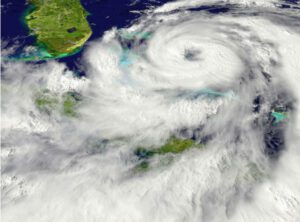 Manufactured homes are particularly vulnerable to high winds, and in certain areas—such as coastal regions or Tornado Alley—standard homeowners insurance policies may not cover wind or hurricane damage. In these cases, you may need to purchase additional wind or hurricane insurance.
Manufactured homes are particularly vulnerable to high winds, and in certain areas—such as coastal regions or Tornado Alley—standard homeowners insurance policies may not cover wind or hurricane damage. In these cases, you may need to purchase additional wind or hurricane insurance.
This type of coverage protects your home and personal property from damage caused by high winds, tropical storms, and hurricanes. The specific details of what is covered, and the associated deductibles, can vary by policy and by state.
Earthquake Insurance
If you live in an area prone to earthquakes, you’ll need a separate earthquake insurance policy to protect your manufactured home from earthquake-related damages. Earthquake insurance typically covers the cost of repairing or rebuilding your home, as well as replacing damaged personal property. It may also provide coverage for additional living expenses if your home becomes uninhabitable after an earthquake.
4. Factors That Affect the Cost of Manufactured Home Insurance
When shopping for manufactured home insurance, you’ll likely notice a wide range of premiums depending on your specific circumstances. Several factors contribute to the overall cost of insuring your manufactured home, and understanding these factors can help you make better decisions when purchasing a policy. Let’s explore the key variables that influence the cost of manufactured home insurance, so you know what to expect and how to potentially lower your premiums.
1. Location of Your Manufactured Home
The location of your home plays a significant role in determining the cost of your insurance premium. Some key location-based factors include:
- Geographic Area: Homes located in areas prone to natural disasters—such as hurricanes, tornadoes, earthquakes, or floods—typically carry higher insurance premiums because the risk of damage is greater. For example, manufactured homes in coastal regions, which are more vulnerable to hurricanes, will usually have higher premiums than homes located inland. Similarly, if you live in an area prone to wildfires or earthquakes, you might need additional coverage, which increases your overall insurance cost.
- Crime Rates: If your manufactured home is located in a neighborhood with high crime rates, particularly for theft or vandalism, insurers may charge higher premiums to account for the increased likelihood of filing a claim.
- Zoning and Land Use: Whether your manufactured home is located in a designated mobile home park or on private land can also affect insurance costs. Homes in mobile home parks may face different risks, such as shared infrastructure or communal amenities that can influence your liability coverage. Conversely, homes on private land might have lower liability costs, but the property’s land use zoning can still impact the overall rate.
2. Age and Condition of the Home
The age and condition of your manufactured home are crucial factors in determining your insurance costs:
- Age of the Home: Older manufactured homes tend to have higher premiums because they may not meet current building codes, have outdated electrical or plumbing systems, or be more prone to damage. Homes built before 1976 are particularly vulnerable to high insurance premiums because they predate the establishment of federal building standards for manufactured homes under the HUD Code (implemented in 1976). These homes may be seen as riskier by insurers because they lack the safety and durability features required by modern building codes.
- Condition of the Home: Even newer homes can face higher insurance premiums if they are not well maintained. Insurers consider the overall condition of your home, including the roof, foundation, plumbing, and electrical systems. Homes that have been well maintained, regularly updated, and inspected will often qualify for lower premiums, while homes in disrepair or with outdated systems will be more expensive to insure.
- Renovations and Upgrades: If you’ve recently upgraded or renovated your manufactured home, it could either raise or lower your premiums depending on the type of work done. Upgrades that improve the safety or durability of your home, such as a new roof or reinforced windows, may lower your premiums. However, significant renovations that increase the home’s value, like adding square footage or luxury fixtures, could increase premiums because the replacement cost of the home would be higher.
3. Value of the Home and Contents
The replacement cost or market value of your manufactured home is another major factor in determining your insurance premium:
- Replacement Cost vs. Market Value: Insurers offer different types of coverage based on how much it would cost to replace your home in the event of a total loss. If you choose a replacement cost policy, the insurer will pay to rebuild or replace your home with materials of similar kind and quality, regardless of its depreciated value. This type of policy generally has higher premiums but provides better protection. On the other hand, a market value or actual cash value (ACV) policy considers depreciation, meaning the insurer will only pay out the current value of your home, which may be significantly lower than the cost to replace it. ACV policies tend to be cheaper but may not provide adequate coverage if your home is severely damaged.
- Personal Property Value: The value of the personal property inside your home, such as furniture, electronics, clothing, and appliances, will also impact your insurance premium. Higher coverage limits for personal property will result in higher premiums, so it’s important to accurately assess the value of your belongings and decide whether additional endorsements or riders are necessary for high-value items like jewelry or collectibles.

4. Safety and Security Features
Homes that have modern safety and security features typically qualify for lower insurance premiums because they reduce the risk of damage or loss. Some of the key features that insurers look for include:
- Smoke Alarms and Fire Extinguishers: Installing smoke detectors and having accessible fire extinguishers can help reduce your premiums because they decrease the risk of fire damage.
- Security Systems: Homes equipped with security systems, such as burglar alarms, surveillance cameras, or smart home technology, often qualify for discounts because they lower the risk of theft or vandalism.
- Storm Protection Features: If you live in an area prone to hurricanes or tornadoes, insurers may offer lower premiums if your manufactured home is equipped with storm shutters, reinforced roofing, or hurricane straps that help secure the structure to the foundation. These features make your home more resilient to extreme weather events, thereby reducing the likelihood of severe damage.
- Fencing and Lighting: Adding fencing or outdoor lighting can enhance the security of your property, which might qualify you for discounts with some insurers.
5. Deductibles and Coverage Limits
The deductible you choose and the coverage limits you set also affect the cost of your manufactured home insurance:
- Deductible Amount: A deductible is the amount you agree to pay out of pocket before your insurance coverage kicks in. Generally, the higher your deductible, the lower your premium will be. For example, if you choose a $1,000 deductible instead of a $500 deductible, you’ll likely see a reduction in your premium. However, it’s important to choose a deductible that you can comfortably afford to pay in the event of a claim.
- Coverage Limits: Higher coverage limits on your policy will result in higher premiums, as the insurer is taking on more risk. For instance, increasing your dwelling coverage limit to account for the full replacement cost of your home will raise your premium. Similarly, opting for higher liability coverage to protect against lawsuits or medical claims will also increase your insurance costs. It’s essential to balance your coverage limits with your risk tolerance and ensure that you’re not over- or under-insured.
6. Insurance Provider and Discounts
Different insurance providers may offer different rates for similar coverage, so shopping around and comparing quotes is an essential step in finding affordable manufactured home insurance. Here are some key factors related to your provider:
- Reputation and Specialization: Some insurance companies specialize in manufactured home insurance and may offer better rates or more comprehensive coverage than general providers. It’s important to research the reputation of each insurer and make sure they understand the unique needs of manufactured homes.
- Bundling Discounts: Many insurers offer discounts if you bundle multiple policies, such as auto, life, or home insurance, with the same company. Bundling can provide significant savings and simplify your insurance management.
- Claims History Discounts: If you have a claims-free history, some insurance companies will offer lower premiums as an incentive to reward responsible policyholders. Maintaining a good insurance record can help you qualify for these discounts over time.
- Loyalty and Renewal Discounts: Staying with the same insurer for several years may earn you loyalty discounts or lower rates upon policy renewal.
7. Mobile Home Park vs. Private Property
The type of land your manufactured home sits on also impacts your insurance rates. Homes located in mobile home parks face different risks than those on private property: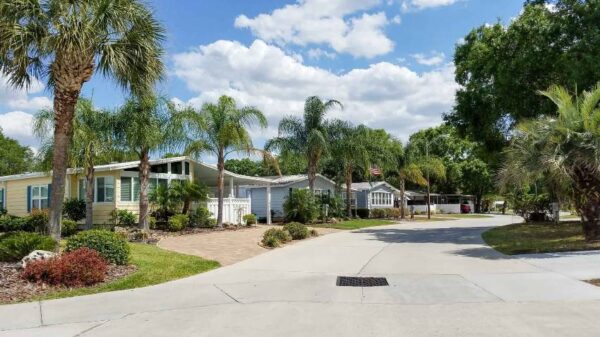
- Mobile Home Parks: Insurance premiums may be higher for homes in parks due to increased risks associated with shared infrastructure (such as utilities) and liability related to communal spaces (such as playgrounds or clubhouses). Additionally, some mobile home parks may require specific types of insurance coverage for residents.
- Private Land: If your manufactured home is on private land, your premiums might be lower because there’s generally less risk from communal spaces or shared infrastructure. However, if your home is located in a remote area, you may face higher premiums due to factors like limited access for emergency services or increased susceptibility to certain hazards (such as wildfires).
8. Claims History
Your personal claims history also plays a role in determining your premium:
- Frequent Claims: If you have a history of filing multiple insurance claims, insurers may view you as a higher risk, leading to increased premiums. This applies not only to claims for your manufactured home but also to any claims you’ve filed for other types of insurance, such as auto or renters insurance.
- Clean Claims Record: On the other hand, if you have a clean claims record and haven’t filed claims in several years, many insurance companies will offer lower premiums or claims-free discounts as a reward for your low-risk profile.
Several factors impact the cost of manufactured home insurance, including the location of your home, its age and condition, the value of your property, safety features, and the coverage limits you choose. By understanding how each of these factors influences your premiums, you can take proactive steps to reduce your costs, such as maintaining your home, installing safety features, and shopping around for the best insurance provider.
It’s important to balance affordability with adequate protection, ensuring that your manufactured home is covered against the risks specific to your region and lifestyle. Regularly reviewing your policy and making adjustments as needed can help you stay protected while keeping your premiums in check.
5. Choosing the Right Insurance Provider
Selecting the right insurance provider is one of the most crucial steps in ensuring that your manufactured home is adequately protected. The right provider will not only offer comprehensive coverage options but also provide competitive pricing, excellent customer service, and reliable claims handling. Choosing an insurance company should go beyond just comparing prices—you’ll want to evaluate the insurer’s reputation, financial strength, policy offerings, and how well they understand the unique needs of manufactured homeowners.
Here’s an in-depth look at the key factors to consider when choosing the right insurance provider for your manufactured home:
1. Specialized Experience with Manufactured Homes
Not all insurance providers specialize in manufactured homes, and this distinction is important. Manufactured homes have unique characteristics compared to site-built homes or even modular homes. The risks associated with manufactured homes—such as exposure to wind damage, the possibility of being relocated, and often being located in mobile home parks—differ from those of traditional homes. Insurers that specialize in manufactured homes are more familiar with these risks and can provide tailored coverage that adequately protects your investment.
- Why It Matters: Insurance providers that have experience in the manufactured home market understand the nuances of construction, potential vulnerabilities, and common claims associated with these types of homes. This means they can offer better guidance on the specific coverages you may need, as well as identify potential gaps in coverage that less experienced insurers might overlook.
- What to Look For: Look for companies that specifically advertise policies for manufactured and mobile homes. These providers often offer flexible coverage options, endorsements, or riders that are relevant to manufactured homeowners, such as windstorm or flood coverage. They are also more likely to offer lower deductibles for claims related to manufactured home-specific issues.
2. Financial Stability and Strength
When choosing an insurance provider, financial stability is one of the most important factors to consider. You need an insurer that can meet its financial obligations, especially in times of widespread disaster when they may face multiple claims simultaneously. An insurance provider with strong financial backing will have the resources to pay out claims efficiently and quickly, ensuring that you can repair or replace your home without delay.
- Why It Matters: In the event of a major catastrophe—such as a hurricane, flood, or tornado—insurance companies may be overwhelmed with claims. If an insurer is not financially stable, they may struggle to pay out claims in a timely manner or, worse, may not have the funds to cover all their policyholders. By choosing a financially sound company, you’re ensuring that your insurance policy will provide the coverage you’ve paid for when you need it most.
- What to Look For: Check the insurance company’s A.M. Best or Standard & Poor’s financial ratings. These organizations rate the financial health of insurers based on their ability to pay out claims. Look for companies with an A rating or higher, as these are considered financially strong and reliable.
3. Policy Coverage and Customization Options
Not all insurance policies are created equal, and the right provider should offer a wide range of coverage options that suit your specific needs as a manufactured homeowner. Standard policies may not be enough to cover all the risks your home faces, so it’s essential to choose a provider that offers flexibility in customizing your policy.
- Core Coverage: Ensure that the provider offers standard manufactured home coverage, including dwelling, personal property, liability, and additional living expenses (ALE). These are the basic protections you’ll need in case of damage to your home or property, theft, or personal liability issues.
- Additional Coverage Options: Many manufactured homes face unique risks, such as windstorm, hurricane, or flood damage, depending on their location. Look for insurers that offer endorsements or riders that cater to these risks. Some examples include:
- Windstorm and Hurricane Coverage: In areas prone to hurricanes or tornadoes, wind damage may not be covered under a basic manufactured home policy. You’ll want a provider that offers specific coverage for wind-related events.
- Flood Insurance: Most standard policies do not cover flooding, so if your home is in a flood-prone area, the provider should either offer a flood insurance add-on or be able to help you secure a policy through the National Flood Insurance Program (NFIP).
- Earthquake Insurance: If you live in a region susceptible to earthquakes, the insurer should offer earthquake-specific policies or endorsements to cover potential damage.
- Replacement Cost vs. Actual Cash Value (ACV): Ensure that the provider offers the option to choose between replacement cost and actual cash value coverage. Replacement cost pays for the cost of rebuilding your home with materials of similar kind and quality without factoring in depreciation. ACV, on the other hand, considers depreciation and often results in lower payouts. Depending on your budget and home value, you’ll want to know which option your provider can offer and at what cost.
4. Claims Process and Customer Service
An insurance company’s true value is often revealed during the claims process. How an insurer handles claims is crucial because this is when you will rely on them the most. A smooth, hassle-free claims process ensures that your home and belongings are quickly repaired or replaced, minimizing the disruption to your life.
- Why It Matters: The claims process can be stressful, especially after experiencing a major loss like a fire, flood, or storm. You want an insurance provider that responds quickly, assesses damage fairly, and issues payouts in a timely manner. Poor customer service or a slow claims process can leave you waiting for weeks or even months to get your home back in livable condition.
- What to Look For: Look for reviews and testimonials from current or former policyholders that mention the claims process. Pay particular attention to how quickly the insurer responds to claims, the helpfulness of their claims adjusters, and whether there were any issues with payouts or denied claims. Some companies offer 24/7 claims filing, while others may provide an online claims tracking system where you can monitor the status of your claim in real time.
- Customer Support Availability: Choose a provider with responsive customer service. Whether you prefer to file claims or ask questions online, by phone, or in person, make sure the insurer offers multiple support options and has a reputation for helpful, knowledgeable staff.
5. Pricing and Affordability
While price should not be the only factor in choosing an insurance provider, it’s still an important consideration, especially if you’re on a budget. Manufactured home insurance premiums can vary widely depending on your location, the age and condition of your home, the amount of coverage you need, and your deductible.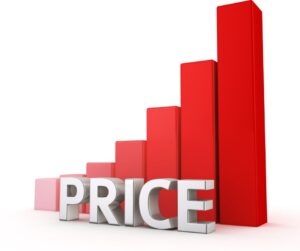
- Why It Matters: It’s essential to find an insurance provider that offers competitive rates for the coverage you need without sacrificing service or coverage quality. However, the cheapest policy isn’t always the best option if it leaves you underinsured or if the provider has a poor claims history.
- What to Look For: Obtain quotes from multiple insurers to compare premiums, but don’t just focus on the base price. Consider factors like coverage limits, deductibles, exclusions, and additional coverage options. Be wary of policies that are significantly cheaper than others, as they may offer reduced coverage or higher out-of-pocket expenses when you file a claim.
6. Available Discounts
Many insurance providers offer discounts that can lower your premiums without reducing your coverage. Choosing a provider with a robust selection of discounts can save you money in the long run.
- Bundling Discounts: If you purchase multiple insurance policies from the same company, such as combining your manufactured home insurance with your auto or life insurance, many providers will offer a multi-policy discount. This can significantly reduce your overall premiums.
- Safety Discounts: Homes equipped with certain safety features may qualify for discounts. For example, having smoke alarms, fire extinguishers, security systems, or storm shutters could make you eligible for a reduction in premiums.
- Claims-Free Discounts: Some providers offer discounts for policyholders who have not filed any claims within a certain period. Maintaining a clean claims record can make you eligible for lower rates over time.
- Loyalty Discounts: Staying with the same insurance provider for several years may also make you eligible for a loyalty discount, where your premiums decrease the longer you remain a customer.
7. Reputation and Customer Reviews
In today’s digital age, it’s easy to research the reputation of insurance companies online. Reading customer reviews and researching the company’s history can give you valuable insight into how well they handle claims, customer service, and overall policy satisfaction.
- Why It Matters: An insurer’s reputation provides insight into the experiences of other policyholders. Look for reviews from manufactured homeowners specifically, as they can give you a better sense of how well the insurer handles claims and customer service for homes like yours.
- What to Look For: Use resources like Consumer Reports, J.D. Power, or the Better Business Bureau (BBB) to research insurance companies and their rankings. Look for high satisfaction ratings, particularly in claims handling, customer service, and policy flexibility.
8. Local Expertise and Availability
If you live in an area that faces specific risks, such as hurricanes, floods, or wildfires, it’s a good idea to choose an insurance provider with local expertise. Some national providers may not fully understand the specific risks of your area, whereas a company with local agents or knowledge may offer better coverage options tailored to your environment.
- Why It Matters: Insurance companies with local expertise can help you find the right coverage for the risks you face, as well as provide more personalized service. Local agents may also be more familiar with state-specific regulations and requirements for manufactured homes.
- What to Look For: Consider choosing a provider with a local presence or that partners with local agents. They’ll be more in tune with the unique needs of manufactured homeowners
6. How to Lower Your Manufactured Home Insurance Premiums
There are several ways to reduce the cost of your manufactured home insurance premiums:
- Increase Your Deductible: Opting for a higher deductible can lower your monthly premium, but be sure you can afford the out-of-pocket cost if you need to file a claim.
- Install Safety Features: Adding safety features like smoke detectors, security systems, and storm shutters can help reduce your risk and lower your insurance premium.
- Bundle Your Policies: Many insurers offer discounts if you bundle your manufactured home insurance with other policies, such as auto or life insurance.
- Maintain a Claims-Free History: Insurance companies may offer lower rates to policyholders who have a history of not filing claims.
- Review Your Coverage Regularly: Regularly reviewing your policy to make sure you’re not paying for unnecessary coverage can help you save money.

7. What to Do If You Experience a Loss
If your manufactured home is damaged or you experience a loss, follow these steps to ensure your claim is handled quickly and efficiently:
- Document the Damage: Take photos or videos of the damage as soon as possible. This will help provide evidence for your insurance claim.
- File a Claim: Contact your insurance provider to report the loss and start the claims process. Be sure to have your policy number and details about the incident ready.
- Work with an Adjuster: Your insurance company will send an adjuster to assess the damage and estimate the cost of repairs. Be sure to provide them with any documentation you have, such as photos and receipts for repairs.
- Get Repair Estimates: Obtain estimates from licensed contractors for the repairs. Your insurance company may require multiple estimates before approving the claim.
- Keep Track of Expenses: If you need to stay in a hotel or incur other additional living expenses, keep all receipts and submit them to your insurance company for reimbursement.
8. Common Myths About Manufactured Home Insurance
There are several misconceptions about insuring manufactured homes. Here are some common myths, debunked:
- Myth 1: Manufactured homes can’t be insured.
Reality: Manufactured homes can be insured, and many insurance providers offer specific policies designed for these homes. - Myth 2: Manufactured home insurance is too expensive.
Reality: The cost of insuring a manufactured home is often comparable to insuring a traditional home, especially when you factor in discounts for safety features and bundling policies. - Myth 3: Flood insurance is included in standard policies.
Reality: Flood damage is not covered under a standard manufactured home insurance policy. You will need to purchase separate flood insurance if you live in a flood-prone area. - Myth 4: Personal belongings aren’t covered.
Reality: Personal property coverage is typically included in a standard manufactured home insurance policy and helps protect your belongings from damage or theft.
9. The Importance of Regularly Reviewing Your Policy
Your insurance needs can change over time, so it’s important to review your manufactured home insurance policy annually. Make sure your coverage limits are adequate, especially if you’ve made improvements to your home or acquired new valuables.
Additionally, reviewing your policy regularly allows you to take advantage of any new discounts or coverage options that may become available.
10. Conclusion: Finding Peace of Mind with the Right Insurance
Properly insuring your manufactured home is an essential step in protecting your investment and ensuring your financial security. By understanding the different types of coverage available and choosing a policy that meets your specific needs, you can enjoy peace of mind knowing that your home and belongings are protected.
Whether you’re insuring your manufactured home for the first time or reviewing an existing policy, be sure to work with a knowledgeable insurance provider who understands the unique risks associated with manufactured homes. By staying informed and making smart coverage choices, you’ll be well-prepared to handle whatever life throws your way.
